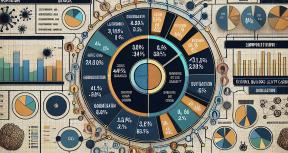This had not been an obvious decision. I had begun my assignment as the World Bank's Country Manager here in Zambia only half a year ago, and last week I invited the World Bank's Independent Evaluators to come and tell all of us what they thought of the last 10 years of the World Bank's projects and programs in the country. Despite hard work and huge efforts on the part of many, not all of it had been successful, and in fact I knew the evaluators' impartial assessment of these ten years was tough: "Moderately unsatisfactory" is how they rated us - in plain English this means "not good enough"! So what was I doing, bringing the evaluators here?
With a population of 15 million, Zambia has a nagging and stubbornly persistent average poverty rate of over 60 percent as of 2015, rising to nearly 80 percent in rural areas. The country is hugely dependent on the copper industry that itself is ailing under dramatic commodity price volatility. The industry is both a challenge and an opportunity for the country, as it is for many similar ones, and the evaluators had produced a unique assessment looking at World Bank programs in four countries that all shared the blessings and burdens that come with extractive resources.
The moments in life are rare, when we - wherever we are in our professional or personal journeys - take the time to reflect, to look back, to consider what we want to do going forward. Governments and World Bank teams are no different. What better opportunity then to instigate such reflections when we have a third person coming along and literally "holding a mirror" in front of us, doing all the research and analysis for us that we might find tough to motivate ourselves to do or to agree on its findings? They are independent, the evaluators, and there is not much to debate about with them. We can take in what they say, and then turn around and consider what we want to do with their findings.
Here in Zambia, the moment in time was even more special. The government is in the middle of preparing its 7th National Development Plan. An election is coming up in less than six months. The World Bank team is about to conclude one multi-year program and beginning to prepare the next one, due to start in mid-2017. There was a lot to build on, when bringing the evaluators here. But there was also something unique to this particular evaluation: The evaluators had not just looked at Zambia - they had analyzed, in parallel, four countries in total, Zambia, Bolivia, Kazakhstan, and Mongolia. And they had gone to Chile and Botswana, taking on some lessons from there. The countries they analyzed were resource rich. Yes, they were on very different development paths and operated in different contexts. But the fact that they struggled with similar challenges as Zambia, the volatility of commodity prices, the political economy of introducing sound fiscal management, the environmental and human cost of large scale extractives to name but a few, that fact made this evaluation interesting. It had already been launched back in Washington, and the evaluators had shared its insights on social media. My government counterparts were intrigued. Can you bring the evaluators? Can we debate with them openly?

So the evaluators came. And their messages were tough - even though presented in kind words. The World Bank should work more, better, and in a more coordinated and strategic manner with the government, the private sector and civil society organizations. We should offer to address challenges in fiscal management; to support governance and institutional capacity for using fiscal resources; help introduce transparency and decentralization; prioritize certain sectors while investing in implementation capacity; support strategies for agricultural development; focus more and more systematically across all programs on poverty reduction; and pay more attention to the environmental and gender dimensions of our work. There were many more messages and findings. Some we knew about - we had just a year ago put out a Zambia Economic Brief on the Mining Industry. But the real value was about seeing the findings in context, across sectors, across time, across organizations. And one message that I took home in particular was about collaboration with and cooperation across ministries: So many projects had suffered in the past from our teams working with one part of the country but not with the other. How can we do better there?
The answers began coming while we hosted the evaluators in Lusaka. We had invited a broad cross-section of stakeholders for a large public dialogue event. In addition to the evaluators, we gave the floor to colleagues from government, the chamber of mines, civil society, and academia. And we gave the floor to every participant - by inviting online comments to be shared "live" during the event. The resulting conversation was remarkable. Open and honest, participants and presenters put out challenges: For everyone to take accountability. For getting serious about where fiscal revenues are being used. For getting serious about fighting poverty. And for the World Bank to be a true "honest broker", bringing together the often conflicting views of stakeholders, based on evidence and convening skills.
The message was clear: We will use this evaluation now to understand how we can build a better future.
Inspired by the many good suggestions that came in throughout the debate, we then went off to see the Cabinet Secretary, Dr. Msiska. He had invited all permanent secretaries, across all government ministries, and some of their key staff to hear from the evaluators, to understand their findings, and to consider what these meant for the new national development plan. Rarely have I witnessed such honest and open dialogue. Focused and pragmatic, the questions came flying. What precisely does "good governance" mean? What did the other countries do better or different? How can one avoid getting lost along the way? Don't we have any positive things to show?
Serious discussions began emerging, some of them bilateral, some of them between officials who clearly had not known each other before. Mind you, cooperation is not obvious even in a small country like Zambia: 32 permanent secretaries, across 25 ministries, with about 180 000 staff on government payroll. It's easy for a development initiative to get lost within one or two agencies. The Cabinet Secretary had read the evaluation cover to cover, as had quite a few of the officials. The message was clear: "We will use this evaluation now to understand how we can build a better future."
The evaluators were impressed. "This is an evaluator's Nirvana," said Nick York, one of the IEG Directors. It's rare, he tells me, that he finds World Bank country colleagues and government teams not only interested, but actually keen to use an evaluation as a context for shaping new ventures. I wonder why this is. Our experience here had been only positive. But perhaps it's also to do with this specific evaluation - that it looked at us, but not only at us, and helped us understand ourselves in the context of others with similar challenges.
Nirvana may be a bit further away for our work here in Zambia than for the evaluators. But in Zambia, we now have a great context for moving forward: Imibele ya kale. History is the basis for future development.









Comments
Add new comment